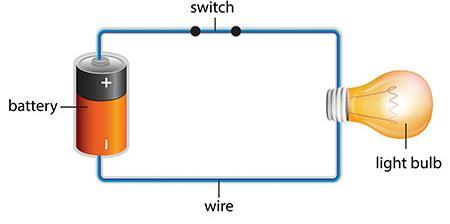
3 minute read
Year 4 Curriculum Map
Summer 1
Mathematics:
This half term, children will be working with fractions greater than one. We will study the relationship between mixed numbers and improper fractions, and will learn how to convert between them.
By the end of this half term, children will be able to accurately place mixed numbers onto a number line, order mixed numbers in ascending and descending order, add mixed numbers and subtract fractions away from mixed numbers.
Science (Physics): Electricity

In summer term 1, the children in Year 4 will sort appliances based on whether they are powered by batteries (DC) or mains (AC) power, as well as exploring renewable energy sources. They will get busy building working series circuits, discovering what features must be included and how they can be adapted, enabling them to investigate the effect of conductors and insulators.
History:
Did the Victorian Empire benefit everyone? This half term, Year 4 will explore the question 8Did the Victorian Empire benefit everyone?9

Children will consider the technological advances of the era as well as the role of the British Empire in combatting slavery and promoting democracy. However, children will consider how the Victorian Empire did not benefit everyone. For example, the children will explore the brutal conditions of workhouses for poor people including young children.
Geography: Did the Romans make Britain better?
Building on their knowledge of changing land use from their autumn studies, children will continue to locate a range of countries on a world map and identify how trade links, travel and a more advanced civiliasation might have improved where we live today.

DT: Textiles
Pupils will learn how to sew a button on to a fabric and identify the different functions of fastenings this half term. They will also create a solution to the problem of a towel slipping off a hook!
Art:
Year 4 will be studying the sculpture work of Alberto Giacometti. The children will make human sculptures with a range of materials, including foil and plasticine.
Computing:
Children will be using coding to develop repetition in games. Children will learn how programming languages enable more than one process to be run at once. Children will develop their own games which will contain repeating functions.
PSHE – Belonging to a Community:
PE:
RE – How do Hindus show their devotion to God?
Building on their understanding of religious meaning, children will explore some Hindu ideas about God and explore the concept that God takes many forms.
How do our choices make a difference to others and the environment? Children will explore economic wellbeing and what decisions people can make with money. They will continue to research a range of careers.
The PE unit this half term is tennis. Children will work on their hand-eye coordination skills and learn how to move around the tennis court effectively. Children will focus on improving their footwork at the beginning of the half term before developing their racket skills by practising striking the ball with varying levels of power. Children will also practise hitting the ball onto targets to improve their ball placement skills.
Reading and Spellings at home:
French:
This half term, the children will build on their knowledge of complex sentences by incorporating new fronted adverbials into their writing, including feminine nouns for the first time. This will allow them to practise adjectival agreement when describing the colour of animals.
Times Tables: Children should all be able to quickly recall all times tables up to 12 x 12 = 144 now. It is essential for children to be accurate and quick with tables so that they can confidently access the full maths curriculum. Keep practising!
To reach their full potential, children must be reading aloud with an adult at home every night. Reading develops skills which are invaluable across the whole curriculum and this extra practice can have a significant impact on the amount of progress made, and the speed at which it is made. When you are reading or practising spellings with your child, please remember to sign in their reading record for a chance to win fantastic prizes.
Music:
Children will listen to 8Under Pressure9 and 8We Will Rock You9 by Queen before composing a piece with tuned and un-tuned instruments that include a riff, an ostinato and dotted syncopated rhythm.
Knowledge organisers which outline the key content covered in History, Science and R.E. will be uploaded onto Seesaw. Please take a look and quiz your child on their newly acquired knowledge!
Homework: In Year 4, children will receive two pieces of homework each week. They will have one piece of English or maths homework and one piece focussed on times tables/basic skills practice. Homework will be sent out on Monday and will be required back in school by the following Monday! Please encourage and support your child with their homework by making sure it is completed on time.

English:
Linking to our history learning, children will read 8Vikings in 30 seconds9 and using this to write a non-chronological report about Viking life. In the second part of the term, children will be reading a variety of poetry by Brian Moses before creating their own narrative poem with an Earth and space theme. They will perform their work to an audience using appropriate tone and intonation.


